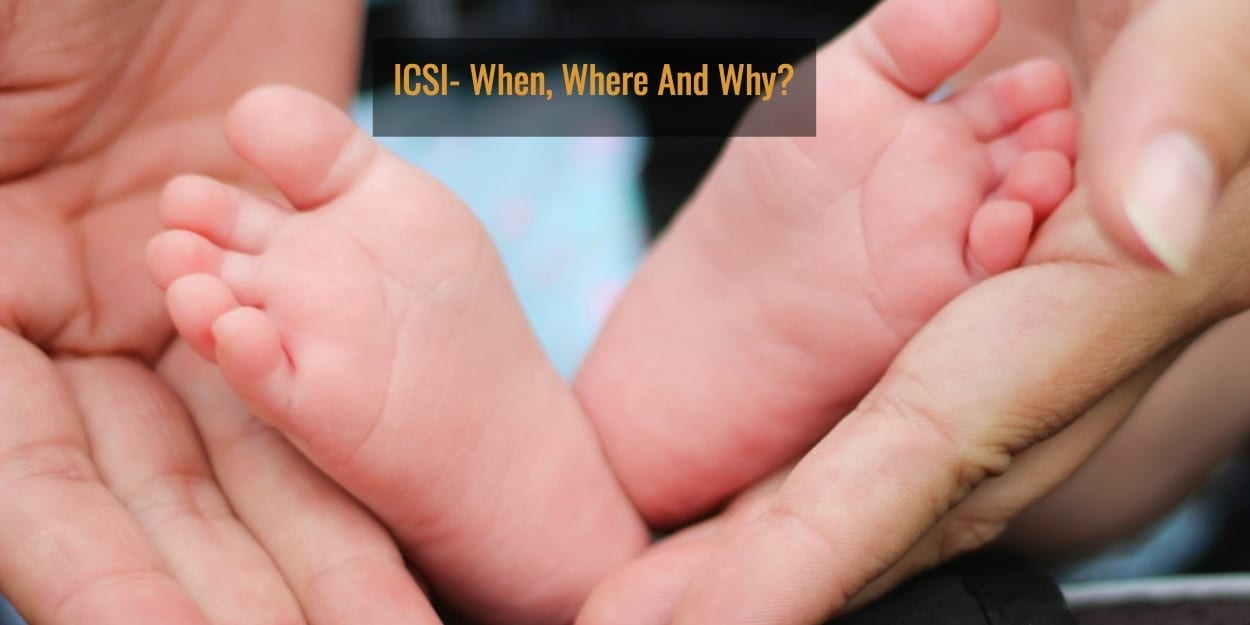ICSI Treatment- When, Where and Why?

What is intracytoplasmic sperm injection (ICSI) or ICSI treatment?
ICSI treatment
In human being formation of an embryo from a woman’s egg and a man’s sperm is a very complex phenomenon. The sperm of a man is a moving cell inside the body and it must reach to the egg at appropriate time to fertilize it as the released egg from ovary can survive for only 24 hours. At times this process doesn’t happen due to any of following problems in the man
- Sperm quantity may be too low – oligospermia
- Azoospermia- No sperms are found
- Defects in sperm movement – Asthenospermia
- Sperm cannot penetrate the egg due to a thick covering – thick zona
Before a man’s sperm can fertilize a woman’s egg, the head of the sperm must attach to the zona of the egg. Once attached, the sperm penetrates through the outer layer to the inside of the egg (cytoplasm), where fertilization takes place.
Sometimes the sperm cannot penetrate the outer layer, for a variety of reasons. The egg’s outer layer may be thick or hard to penetrate or the sperm may be unable to swim. In these cases, a procedure called intracytoplasmic sperm injection (ICSI) can be done to fertilize the egg inside the labaoratory. During ICSI, a single sperm is injected directly into the cytoplasm the egg.
How ICSI is different from IVF?
There are two ways that an egg may be fertilized in the laboratory: IVF and ICSI. In traditional IVF, 50,000 or more swimming sperm are placed next to the egg in a laboratory dish. Fertilization occurs spontaneously when one of the sperm enters into the cytoplasm of the egg. In the ICSI process, a tiny needle, called a micropipette, is used to inject a single sperm into the center of the egg. Fertilization achieved through ICSI can be up to 80-90% whereas through IVF it is aound 50 -60 %. With either traditional IVF or ICSI, once fertilization occurs, the fertilized egg (now called an embryo) grows in a laboratory for 2 to 5 days before it is transferred to the woman’s uterus (womb).
Why ICSI is needed?
ICSI helps to overcome fertility problems, such as:
- The male partner produces too few sperm to do artificial insemination (intrauterine insemination [IUI]) or IVF.
- The sperm may not move in a normal fashion, hence cannot reach up to the egg in time.
- The sperm may have trouble attaching to the egg , Intra cytoplasmic sperm injection overcomes this.
- Azoospermia due to a blockage in the male reproductive tract may keep sperm from getting out. In these couples the sperms are obtained directly from Testes through a minor procedure like PESA or TESE. ICSI helps these couples to achieve a pregnancy even though no sperms are found in semen analysis.
- At times, traditional IVF fails to create embryos in some patients. ICSI can achieve fertilization in such patients regardless of the condition of the sperm.
- ICSI is used along with IVM (In vitro maturation of eggs).
- ICSI is necessary where frozen eggs are used for fertilization.
Does ICSI work for all?
ICSI fertilizes up to 80% of eggs. But certain issues may occur during or after the ICSI process:
- Some or all of the eggs may be damaged. Hence it is advisable to take help of an expert embryology department.
- The egg might not grow into an embryo even after it is injected with sperm. This can happen due to any inherent problem in any one of the couple.
- The embryo may stop growing after fertilization due to several reasons.
Once fertilization takes place, a couple’s chance of achieving pregnancy is same for IVF and ICSI. Chances of Pregnancy in humans is up to 30-40 % even with very good embryos. This is due to the low implantation capacity of human uterus.
Can ICSI affect a baby’s development?
If a woman gets pregnant naturally, there is a 1.5% to 3% chance that the baby will have a major birth defect. The chance of birth defects associated with ICSI is similar to IVF, but slightly higher than in natural conception.
The slightly higher risk of birth defects may actually be due to the infertility and not the treatments used to overcome the infertility.
Certain conditions have been associated with the use of ICSI, such as Beckwith-Wiedemann syndrome, Angelman syndrome, hypospadias, or sex chromosome abnormalities. They are thought to occur in far less than 1% of children conceived using this technique.
Some of the problems that cause infertility may be genetic. For example, male children conceived with the use of ICSI may have the same infertility issues as their fathers. Couple should go through a counselling process at a standard ICSI center with the help of Infertility specialists and embryologists.











